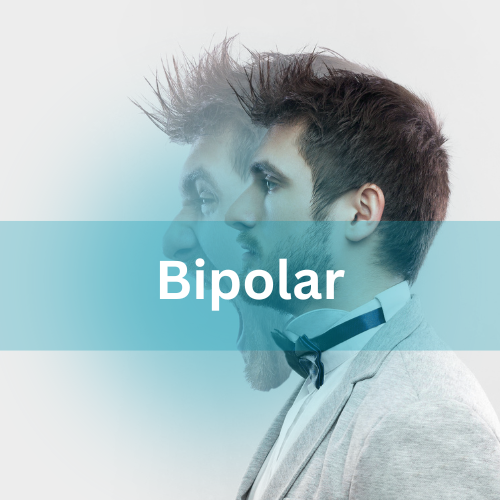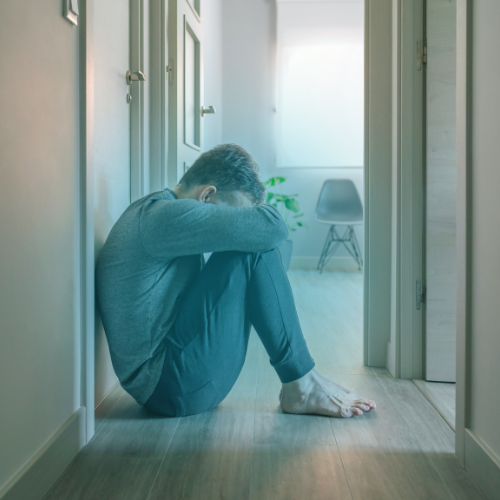
Bipolar disorder
What many patients experience as symptoms begin to lift
Extreme highs and lows may soften, creating a more balanced emotional state.
Feelings of heaviness, hopelessness, and emptiness often reduce quickly.
Mental overactivity and restlessness become easier to manage.
More consistent rest as intrusive or spiraling thoughts quiet down.
Less exhaustion during depressive phases and less agitation during elevated states.
Decision-making, concentration, and daily functioning often feel steadier.

Your struggles are real. So are the solutions we provide.
What can we help you with?

Overcome Depression
Most patients with depression count on medications like antidepressants to improve their mood, yet antidepressants fail to…

Conquer Anxiety
Nearly one-third of adolescents and adults have an anxiety disorder, yet only half of them improve with standard…

Heal from PTSD
Post-traumatic stress disorder (PTSD) has a devastating impact on people of all ages, including about 8% of adults and…

Break Free from OCD
Obsessive-compulsive disorder (OCD) causes unwanted but uncontrollable thoughts and behaviors that disrupt your…

Heal from Bipolar
Bipolar disorder often begins with an episode of major depression before you cycle to mania. In many patients, bipolar depression…

Overcome Suicidality
In 2017, Connecticut officials reported that suicide was the second leading cause of death for people between the ages of…
Learn more about what to expect on your journey.
Frequently Asked Questions
Bipolar disorder, also called manic depression, is a neurological condition that causes shifts in your energy, mood, and activity levels. Patients with bipolar disorder go through identifiable cycles of low mood (depression) and high-energy (mania).
- High activity level
- Insomnia
- Racing thoughts
- Rapid speech
- Feeling irritable
- Risky behaviors (reckless driving, substance abuse, sexual encounters)
- You may also experience hypomania, which means you have the same symptoms but they’re milder than full-blown mania.
- Low energy levels
- Feelings of sadness and hopelessness
- Loss of interest in activities
- Changes in your sleep habits
- Difficulty concentrating
- Changes in your eating habits
- Thoughts of suicide
